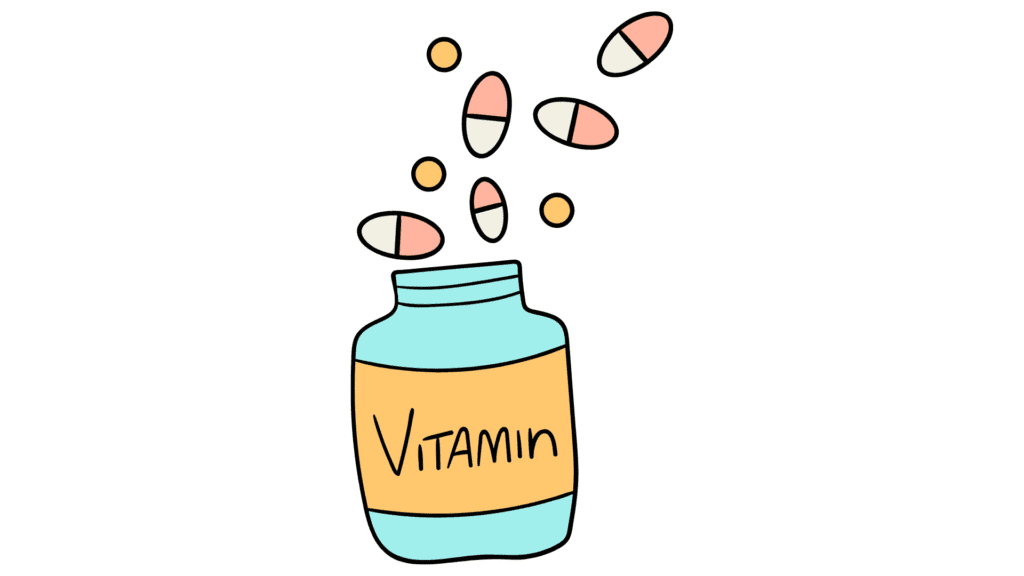How Vitamins Can Help Maintain Healthy Blood Sugar Levels

Maintaining healthy blood sugar is all about a person’s health and stays away from insulin resistance or type 2 diabetes. Diet and physical activity serve as the basis of maintaining blood sugar; however, there are vitamins that have an exclusive function in glucose metabolism and insulin mechanisms. Some key inclusions of key vitamins into your regimen can help balance blood sugar naturally and enhance overall metabolic health.
1. Vitamin D
Vitamin D is crucial in the body for a range of functions, from regulating blood sugar levels to maintaining bone health. It supports the cells in the pancreas that will eventually produce insulin and has been associated with insulin resistance when at low levels. It can be supported with sun exposure, fortified foods, and supplementation that may enhance insulin sensitivity and lower your risk for blood sugar imbalances.
Due to very limited sun exposure, or residing in locations with very limited sun during winter seasons, supplementation of vitamin D is an effortless way to help meet daily needs and support blood sugar health.
2. Vitamin E and Tocotrienols
Vitamin E, especially in its tocotrienol forms, is a powerful antioxidant that could help alleviate oxidative stress, which is often the problem for those with high blood sugar. Oxidative stress enhances insulin resistance and reduces blood vessel health. Some forms of Vitamin E, such as the tocotrienols, have shown promise in supporting glucose regulation and decreasing inflammation.
Including a high-quality tocotrienol supplement, such as the Unique E tocotrienol supplement, can help boost antioxidant protection, which may be beneficial for managing blood sugar and protecting against related complications. Tocotrienols are also associated with improved lipid profiles, which could further support the health of the heart in diabetic individuals.
3. Vitamin B Complex
Among the B vitamins, especially important in maintaining blood sugar balance are B1 or thiamine, B6 or pyridoxine, and B12 or cobalamin. The use of each of these nutrients is explained below in relation to maintaining healthy blood sugar levels:
- Vitamin B1 (Thiamine): This vitamin is highly essential in carbohydrate metabolism; it helps in converting glucose to energy. Most people with high blood sugar have very low levels of thiamine, and therefore, the usefulness of this vitamin as an addition to the regimen for maintenance of blood sugar is immense.
- Vitamin B6 (Pyridoxine): It supports the normal functioning of nerves in people suffering from diabetes or an imbalance of blood sugar levels. It prevents diabetes complications such as neuropathy.
- Vitamin B12-Cobalamin: A deficiency in B12 can cause nerve damage and is relatively common in diabetic patients, especially in those who have been on certain medications. It’s about keeping the nerves and overall blood sugar stability correctly.
4. Vitamin C
Vitamin C is another potent antioxidant that supports blood sugar control through a reduction in oxidative stress and inflammation. Most studies have indicated that people who have high blood sugar tend to have lower levels of vitamin C because there is increased oxidative stress. Supplementation of vitamin C reduces free radical damage, which may further improve insulin sensitivity and reduce complications related to high blood sugar.
Citrus fruits, berries, and leafy greens contain vitamin C, but for those whose dosage is higher, supplements can be of benefit.
5. Vitamin K
Vitamin K is an important nutrient for the heart, and it helps with blood sugar balance. Some studies have found that Vitamin K-both types, but especially K2-provide improved insulin sensitivity, allowing the cells to better take up glucose. With greater insulin sensitivity, the body requires less insulin to manage the proper blood sugar levels and, in turn, keeps glucose within a normal range.
Leafy green vegetables are good sources of Vitamin K. Adding a supplement of Vitamin K2 will be extremely effective, especially among those who want extra support for blood sugar health.
6. Magnesium: A Vitamin-Like Mineral
Although not a mineral by definition, magnesium is included here with vitamins because it plays such an important role in blood sugar maintenance. There are over 300 enzymes within the body that are dependent upon magnesium to do their work. Of those enzymes, several are critical in glucose energy metabolism and insulin control. Lower circulating levels of magnesium are directly related to an increased risk of insulin sensitivity so adequate intake via food or supplementation is crucial.
Leafy green vegetables, nuts, seeds, and whole grains are good sources of food that contain magnesium. Dietary supplementation with magnesium can fill the gap when one is not able to take in enough from the diet for maintaining normal blood sugar levels.
Additional Tips for Blood Sugar Management
While vitamins can provide some support for healthy blood sugar, lifestyle modification has several advantages:
- Eat a Balanced Diet: Include in your diet more high-fiber foods like vegetables, whole grains, and legumes that slow the absorption of sugar and prevent spikes.
- Exercise regularly: Aerobic workout reduces insulin resistance and hence increases the uptake of glucose by the cells.
- Hydrate: Good hydration helps the kidneys function properly, which in turn helps flush out excess sugar from the body.
- Decrease Sugar and Processed Food: This would do a lot in stabilizing the blood sugar levels by reducing added sugars and refined carbohydrates.
Conclusion
Maintaining healthy blood sugar levels is a cornerstone of overall well-being, and vitamins play an important role in supporting this balance. Complementing a well-rounded diet and active lifestyle, several key vitamins-like Vitamin D, the B vitamins, Vitamin E (in particular, tocotrienols), Vitamin C, and Vitamin K-can greatly extend improvements in glucose regulation and insulin sensitivity. Each of these vitamins offers something different:
- Vitamin D is involved in the modulation of insulin production and supports glucose metabolism to protect appropriate cellular function.
- B Vitamins, especially B1, B6, B7 (biotin), and B12, play roles in energy metabolism, nerve health, and an enhancement of glucose utilization.
- Vitamin E (tocotrienols) exerts antioxidant protection and reduces oxidative stress, generally higher in people suffering from blood sugar imbalances.
- Vitamin C improves the health of blood vessels and diminishes inflammation, conditions directly related to insulin resistance.
- Vitamin K acts in the regulation of calcium and energy production, both important in glucose metabolism and insulin sensitivity.
By incorporating these necessary vitamins into your dietary approach, you enhance your body’s own potential for controlling blood sugar levels in a consistent manner. This, in turn, encourages healthier energy levels, lowers the risk of insulin resistance, and serves to protect you from the chronic results of poorly managed blood sugar, which include cardiovascular disease, neuropathy, and renal complications.
You can incorporate the right balance of vitamins, along with a healthy diet and regular exercise, to manage your health and thus achieve stability and resilience in your metabolic systems.


